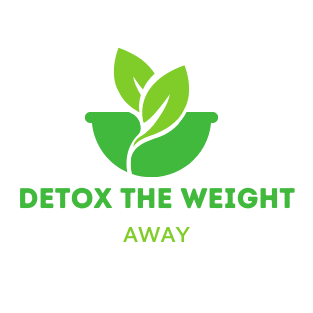While many people think of B12 as simply a vitamin used to treat anemia, it can actually be beneficial for those with anxiety. This comprehensive guide will explore the science behind B12 and anxiety, how to properly determine the best dosage, and the potential risks involved.
By the end of this guide, you should have a better understanding of how B12 can help with anxiety and how it should be used.
Does B12 Help with Anxiety
Anxiety is a common mental health condition that affects millions of people worldwide. It is characterized by feelings of worry, fear, and unease that can range from mild to severe. Symptoms of anxiety can include rapid heartbeat, sweating, muscle tension, and difficulty concentrating.
Vitamin B12 is an essential nutrient that plays a vital role in maintaining brain function and emotional well-being. Studies have shown that a deficiency in B12 can contribute to symptoms of anxiety and depression. Taking B12 supplements is one way to boost your intake of this nutrient and potentially alleviate symptoms of anxiety. However, it is essential to consult with a healthcare professional before taking B12 supplements to determine the right dosage and ensure they are safe for you to take. Additionally, it is important to address any underlying causes of anxiety to manage symptoms effectively.
Introduction to B12 Vitamins and Benefits
Vitamin B12 is essential for maintaining a healthy nervous system, brain function, and blood cell production. It also has potential benefits in reducing anxiety symptoms.
Here is a comprehensive guide to B12 and anxiety:
| Vitamin B12 | Anxiety |
| plays a crucial role in the production of serotonin, a neurotransmitter responsible for regulating mood and reducing anxiety symptoms. | Deficiency in B12 can lead to neurological disorders, depression, and anxiety. |
| Supplementing with B12 may have a positive impact on anxiety symptoms, but it’s not a cure-all for anxiety disorders. | The recommended dosage for B12 supplements varies based on age, gender, and other factors, and it’s best to consult with a healthcare professional before starting any new supplement regimen. |
Understanding the Relationship Between B12 and Anxiety
Lack of B12 can lead to anxiety, depression, and other mental health issues. Understanding the relationship between B12 and anxiety can help one take necessary steps to maintain a healthy B12 level and manage anxiety symptoms.
Here is a comprehensive guide on B12 and anxiety:
| What is B12? | It is a nutrient that plays a vital role in the development and functioning of the brain and nervous system. |
| B12 deficiency symptoms | They include fatigue, weakness, memory loss, and depression. |
| B12 for anxiety | Vitamin B12 aids in the production of serotonin, a neurotransmitter that regulates mood, and helps reduce anxiety and depression symptoms. B12 supplements may help alleviate anxiety symptoms in people with B12 deficiencies. |
| B12 dosage and considerations | The recommended dosage of B12 supplement varies based on age and health factors. Consult with a physician before introducing B12 supplements to your diet. |
Pro tip: Incorporating B12-rich foods such as beef, liver, shellfish, and dairy products can help maintain healthy B12 levels.
Dosage and Supplement Types for B12
Vitamin B12 is sometimes used to treat anxiety, but its efficacy has not been clinically established. While taking a B12 supplement may offer some relief for anxiety symptoms in some cases, the proper dosage and supplement types should be considered.
In this article, we’ll explore the different types of B12 supplements available and how to determine the best dosage for your needs.
Recommended Dosages for B12 Supplements
B12 supplements can be helpful in treating anxiety and other conditions. When it comes to dosage, it is important to follow recommended guidelines to avoid side effects and ensure effectiveness.
The recommended dosage of B12 supplements varies depending on age and health status. For healthy adults, the recommended daily intake is 2.4 micrograms. However, for those with a deficiency, higher doses may be necessary. In cases of anxiety, some studies suggest that doses of 1,000-2,000 micrograms per day may provide relief.
It is important to note that B12 supplements can interact with certain medications and health conditions, so it is important to speak with a healthcare provider before starting supplementation. Additionally, there are different types of B12 supplements, including oral supplements, injections, and sprays. Each type may have different absorption rates and may be better suited for certain individuals.
Pro Tip: Don’t self-medicate with B12 supplements for anxiety without consulting a healthcare provider.
Considerations for Different Forms of B12 (Methylcobalamin, Cyanocobalamin, etc.)
When choosing a form of B12 supplement for anxiety, it is essential to consider the various types available, such as Methylcobalamin and Cyanocobalamin, as well as the appropriate dosage and supplement types.
Methylcobalamin is considered the best form of B12 supplement, as it is easily absorbed and utilized by the body. It has been found to boost energy levels, improve memory, and support mental health, making it a promising option for anxiety relief.
Cyanocobalamin, on the other hand, is a synthetic form of B12 commonly used in supplements, but it is not as easily absorbed and utilized by the body. However, it is still effective and may be a more cost-effective option.
It is crucial to consider the appropriate dosage for B12 supplements based on age, gender, and individual needs. Dosages for anxiety relief typically range from 500 mcg to 1,000 mcg per day.
| Supplement types | Features |
| Capsules | Most common and convenient |
| Sublingual drops | Allow for more efficient absorption |
| Sprays | Allow for more efficient absorption |
Ultimately, it is essential to consult with a healthcare professional before starting any new supplement regimen, especially for anxiety management. Pro tip: A B12 deficiency can also lead to feelings of anxiety, so it is important to address any underlying nutrient deficiencies.
How to Choose the Right B12 Supplement for Anxiety Symptoms
Vitamin B12 supplements are a popular anxiety management tool, but not all B12 supplements are created equal. Here are some key considerations to keep in mind when choosing the right B12 supplement for anxiety symptoms.
| Dosage | Supplement types | Considerations |
| The recommended daily intake of vitamin B12 for adults is 2.4 mcg. However, some anxiety sufferers may benefit from higher doses, up to 1000 mcg per day. A licensed healthcare provider can help you determine the appropriate dosage for your specific needs. | The two most common types of B12 supplements are cyanocobalamin and methylcobalamin. Cyanocobalamin is synthetic and requires conversion by the body before it can be used. Methylcobalamin is a naturally occurring form of B12 that is easily absorbed by the body. Opting for a methylcobalamin supplement is often the best choice for those with anxiety symptoms. | When choosing a B12 supplement for anxiety, it is essential to consider quality and purity. Look for supplements that are certified by reputable organizations and free from artificial colors, flavors, and other additives. |
Pro tip: While vitamin B12 supplements can help reduce anxiety symptoms, they should not be used as a substitute for professional treatment. Please consult your healthcare provider for a comprehensive anxiety treatment plan.
Use of B12 Supplements in Anxiety Treatment
Using B12 supplements for treating anxiety has become a popular option amongst the masses. There is some evidence to suggest that B12 supplements can help improve anxiety symptoms in some individuals. It is important, however, to be aware of the correct dosage and considerations to make when looking into this option for treating anxiety.
In this article, we will explore the use of B12 supplements for anxiety and discuss the considerations to take into account when using this supplement.
Studies on the Effectiveness of B12 against Anxiety
Studies have shown promising results for the effectiveness of B12 against anxiety. B12 supplements may play a role in anxiety treatment, especially for those with a B12 deficiency.
Here are some dosage and considerations for using B12 for anxiety:
| Dosage | Considerations |
| The recommended daily intake of B12 is 2.4 mcg. However, those with a B12 deficiency may require higher doses, which should be determined by a healthcare professional. | B12 supplements may interact with certain medications, such as metformin and proton pump inhibitors. It is important to consult with a healthcare professional before starting any new supplements. |
While B12 supplements may be helpful for some individuals with anxiety, it is important to note that they should not be used as a sole treatment method. A comprehensive treatment plan that includes therapy and potentially medication should always be considered.
Other Benefits of B12 Supplements for Anxiety Disorders
While Vitamin B12 is most commonly known for its role in promoting red blood cell formation and maintaining healthy nerve and brain function, research suggests that B12 supplements may also have a positive effect on anxiety and stress-related disorders.
Here are some of the other benefits of B12 supplements for anxiety:
| Benefit | Description |
| Improved mood and energy levels | B12 plays a crucial role in the synthesis of neurotransmitters such as serotonin, which are responsible for regulating mood and energy levels. |
| Reduced stress levels | B12 supplementation has been shown to reduce stress and anxiety levels by regulating the body’s stress response system. |
| Improved cognitive function | Studies suggest that B12 supplements may enhance cognitive function and slow down cognitive decline. |
Overall, B12 supplements can be considered an effective, safe, and affordable treatment option for individuals struggling with anxiety disorders.
Pro tip: While B12 supplements are considered safe and have a low risk of side effects, it is important to talk to your doctor before starting any new supplement regimen, particularly if you have any underlying health conditions or are taking medication.
Precautions and Possible Side Effects While Taking B12
B12 supplements are generally considered safe, but it is essential to be aware of the possible side effects and precautions while taking them for anxiety treatment.
Here are some precautions and possible side effects to consider:
- Always consult your doctor or a certified nutritionist before starting B12 supplements, especially if you have pre-existing health conditions, are taking medication, are pregnant or breastfeeding.
- Be mindful of the dosage. Too much B12 intake can cause adverse side effects such as acne, headaches, dizziness, anxiety, and nausea.
- People with allergies to cobalt or cobalamin should avoid B12 supplements altogether.
- Always purchase B12 supplements from reputable brands and manufacturers.
- If you experience any severe side effects after starting the supplements, immediately stop taking them and consult your doctor.
Pro tip: To avoid B12 deficiency and the need for supplements, aim to include more B12-rich foods in your diet, such as meat, fish, dairy, and eggs.
B12 Deficiency and Anxiety
B12 deficiency has been linked to numerous physical and mental health issues, including anxiety. B-vitamin deficiency is one of the most common nutrient deficiencies in the world, but it can have serious long-term health consequences if left untreated.
Let’s explore what B12 deficiency is, how it can lead to anxiety, and what you can do to combat it.
Causes, Symptoms, Diagnosis of B12 Deficiency
B12 deficiency can present with a range of symptoms, and early diagnosis is essential to avoid complications. Anxiety is one of the symptoms associated with B12 deficiency, and supplementing with B12 may help alleviate anxiety symptoms.
Here are the causes, symptoms, and diagnosis of B12 deficiency:
| Causes: | B12 deficiency can be due to dietary factors, medical conditions such as pernicious anemia, or medications that interferes with vitamin absorption. |
| Symptoms: | B12 deficiency can present with fatigue, weakness, numbness and tingling in the extremities, muscle weakness, mood changes, difficulty with balance, and cognitive issues. |
| Diagnosis: | Blood tests measuring B12 levels can confirm B12 deficiency. Additional tests may be necessary to determine the underlying cause. |
B12 supplementation may help alleviate anxiety symptoms as studies suggest that low levels of B12 in the body may lead to an increased risk of anxiety and depression. A doctor can recommend the right dosage and form of B12 supplements depending on the individual’s needs.
Pro-tip: It is important to note that anxiety may have a range of causes, and working with a healthcare professional is essential to determine the underlying cause and receive appropriate treatment.
Connection between B12 Deficiency and Anxiety
Studies have shown a connection between B12 deficiency and anxiety. B12 is an essential vitamin that plays a critical role in brain function and mood regulation. Low levels of B12 in the body can cause anxiety, depression, irritability, and other mood disorders.
If you’re suffering from anxiety and suspect it could be a result of B12 deficiency, consider taking B12 supplements or incorporating B12-rich foods into your diet. However, it is essential to consult a healthcare professional before taking any supplements, as they may interact with other medications or lead to unwanted side effects.
The recommended dosage for B12 depends on factors such as age, sex, and health goals. However, the daily suggested dose for most adults is 2.4 micrograms.
| Pro tip: | Incorporate B12-rich foods such as salmon, tuna, and beef into your diet to meet your daily B12 requirements. |
How to Identify and Treat B12 Deficiency in Anxious Patients
B12 deficiency is a common cause of anxiety and other mental health issues. Identifying and treating B12 deficiency can help alleviate anxiety symptoms.
Symptoms of B12 deficiency include fatigue, weakness, tingling or numbness in the extremities, and mood changes such as depression and anxiety. Treatment typically involves B12 injections or supplements, and occasionally dietary changes like increasing intake of fish, meat, and dairy products rich in the vitamin.
When it comes to using B12 for anxiety, the recommended dosage varies depending on the severity of the deficiency and the individual’s needs. It is always important to consult with a healthcare provider before starting any supplement regimen. Additionally, it is important to take into account any medication interactions or pre-existing conditions before adding a B12 supplement.
If you or someone you know is experiencing anxiety or other mental health issues, a consultation with a medical professional can help identify and treat potential underlying causes such as vitamin deficiencies. Pro Tip: While supplements are helpful, a well-balanced diet rich in whole foods may help maintain a healthy B12 level.

Lifestyle and Diet Changes for Anxiety and B12 Levels
Lifestyle and dietary changes can help in dealing with anxiety. Vitamin B12 is one of the key elements when it comes to fighting anxiety and maintaining a healthy lifestyle. Studies have found that increasing dietary intake of B12 can help reduce symptoms of anxiety.
In this article, we discuss how to increase Vitamin B12 levels and the recommended dosage for anxiety relief.
Changes in Diet to Increase B12 Intake
Vitamin B12 is important for the proper functioning of the nervous system and maintaining healthy red blood cells. Changes in diet can be made to increase B12 intake to prevent deficiency and alleviate anxiety symptoms.
The following food sources are rich in vitamin B12:
| Meat, poultry, and seafood | Dairy and eggs | Plant-based foods |
| Beef, chicken liver, salmon, tuna, and clams | Milk, cheese, and eggs | Some breakfast cereals, nutritional yeast, and plant-based milk |
If you are unable to get enough B12 from your diet, consider taking a B12 supplement. Working with a healthcare professional can help determine the appropriate dosage and whether supplementation is necessary to address anxiety symptoms.
Pro tip: Pairing foods that are high in vitamin C with B12-rich foods can improve the body’s absorption of the vitamin.
Lifestyle Adjustments for Better Mental Health
There are several lifestyle adjustments and diet changes that can improve your mental health and reduce symptoms of anxiety. One such change is increasing your intake of vitamin B12, which has been shown to have a positive effect on anxiety levels.
Here are some considerations and dosage suggestions when supplementing with vitamin B12 for anxiety:
| Consult with your healthcare provider before starting any new supplements or making changes to your diet. |
| The recommended daily intake of vitamin B12 for adults is 2.4 micrograms. |
| For those with anxiety, higher doses of B12 may be needed, up to 1000 micrograms per day or more, under the supervision of a healthcare professional. |
| Vitamin B12 supplements can be taken orally in pill form or via injection. |
In addition to supplementation, incorporating vitamin B12-rich foods into your diet, such as fish, meat, eggs, and dairy products, can also help increase your vitamin B12 levels and potentially improve symptoms of anxiety.
Other Natural Remedies, Supplements, and Therapies to Consider for Anxiety Relief
While lifestyle and diet changes can have a significant impact on anxiety relief, there are several other natural remedies, supplements, and therapies that can also be helpful. One such remedy is Vitamin B12, which has been linked to reducing anxiety symptoms and improving overall mental health.
Here are the factors to consider while using B12 for anxiety relief:
| Dosage: | The recommended dosage for B12 supplements ranges from 500-1000 mcg per day. However, it’s best to consult with a healthcare professional to determine the right dosage for your specific needs. |
| Considerations: | B12 supplements may interact with certain medications, and those with chronic kidney disease or allergies to cobalamin should avoid taking these supplements. |
Other natural remedies and therapies for anxiety relief include herbal supplements (such as valerian root and passionflower), aromatherapy, mindfulness meditation, and acupressure. It’s essential to speak to a healthcare professional before trying any new therapies or supplements.
Pro Tip: A combination of lifestyle changes, dietary adjustments, and natural remedies can be the most effective way to manage anxiety symptoms.

